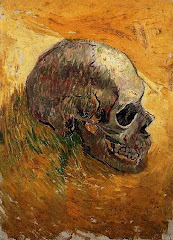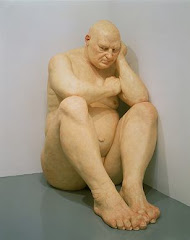The trial of the alleged “twentieth hijacker” Zacarias Moussaoui is in the penalty phase, and the jury of nine men and three women are currently deliberating his fate. To be executed, the jury of twelve must vote unanimously. Otherwise, Judge Leonie M. Brinkma must, by law, impose a life sentence without the possibility of parole.
On April 22, 2005, Zacarias Moussaoui pleaded guilty to six conspiracy charges in connection with the tragic and horrible events on September 11th. The charges listed in the indictment are: Conspiracy to commit acts of terrorism transcending national boundaries, Conspiracy to commit aircraft piracy, Conspiracy to destroy aircraft, Conspiracy to use weapons of mass destruction, Conspiracy to murder United States employees, and Conspiracy to destroy property.
The twelve jurors voted unanimously that Zacarias Moussaoui was eligible for the death penalty because they believed Zacarias Moussaoui “willfully concealed his knowledge of Al Qaeda’s plans to fly planes” into pre-selected targets in the United States, thus “allowing the plot to go forward” on September 11th.
Raised a Catholic; belief in the sanctity of life from conception to unassisted and natural death is a core value – even for criminals despicable enough to plan and murder innocent individuals on a grand scale. Moreover, I find state sponsored executions appalling.
However, arguing for a life sentence for Zacarias Moussaoui is a daunting task. Jurors may feel pressured into imposing the death penalty on Zacarias Moussaoui. Gerald Zerkin acknowledged that fact when he “told the jurors they would have to show courage.”
September 11th is the most traumatic event in the recent history of the United States. Naturally, a jury of twelve would want to hold someone responsible for the tragic loss of life on that infamous day. It is probably impossible to sentence anyone connected with the September 11th attacks to a life sentence – even without the possibility of parole. As Americans, we may feel entitled to our pound of flesh.
Jurors considering the fate of Zacarias Moussaoui must consider a “series of complicated factors” such as did Zacarias Moussaoui intend to cause “a grave risk of death to more than one person.”
Zacarias Moussaoui’s federal public defender Gerald T. Zerkin argued in favor of a life sentence without the possibility of parole. Zerkin used the usual “sentence the defendant to life in prison instead of the death penalty” arguments such as the lousy childhood defense (Zacarias Moussaoui “unstable early childhood and dysfunctional family resulted in [Zacarias Moussaoui] being placed in orphanages”), race (Zacarias Moussaoui, the disadvantaged minority living in France), and the defendant’s mental condition (Zacarias Moussaoui is crazy). Zacarias Moussaoui’s antics during the trial will certainly be a factor in any future appeals. However, another defense strategy was introduced during the penalty phase: the religion of Islam.
Before continuing, it is important to make the following suppositions: Zacarias Moussaoui is what he says he is, the twentieth hijacker who conspired with nineteen others to crash four planes into landmarks in the United States. Secondly and more importantly, Zacarias Moussaoui is of sound mind.
Mr. Zerkin argued that Zacarias Moussaoui wants to become a martyr, and the death penalty will achieve that goal. He told the jury, “he came to America to die, and you are his last chance.”
There are two reasons that should be considered in sentencing Zacarias Moussaoui to life in prison without the possibility of parole.
First, martyrdom is a powerful concept in the religion of Islam, as is fighting in the cause of God. Such is stated in the Holy Quran, “Those who have left their homes, or been driven out therefrom, or suffered harm in My Cause, or fought or been slain, - verily, I will blot out from them their iniquities, and admit them into Gardens with rivers flowing beneath; - A reward from the presence of Allah, and from His presence is the best of rewards.”(3:195)
In addition, “Allah hath purchased of the believers their persons and their goods; for theirs (in return) is the garden (of Paradise): they fight in His cause, and slay and are slain: a promise binding on Him in truth, through the Law, the Gospel, and the Qur'an: and who is more faithful to his covenant than Allah? Then rejoice in the bargain which ye have concluded: that is the achievement supreme.” (9:111)
Over 1400 years ago, Muhammad tried to convert the pagan Arabs to monotheism. However, the pagans rejected Muhammad’s call to Islam, and the Arab prophet was forced to flee from Mecca to Medina. Moreover, the pagan Arabs continued to perceive Islam as a threat to their way of life, and engaged the Muslim minority in battle. The above revelations served as an exhortation to fight in the cause of God, and any Muslim who died in battle was comforted in the knowledge that he died fighting in the cause of God, and God would reward the deceased with paradise.
Regarding martyrdom, Mohammad was quoted as saying “who asks martyrdom with sincerity will be ranked by [God] among the martyrs even if he dies on his bed.
Once, a man approached Mohammad, and declared, “I testify that there is no true god except Allah, and you are his slave and messenger.” Later on the man went into battle and died. Mohammad said, “He has done little, but shall be given a great reward.”
Zacarias Moussaoui believes he is fighting for a good cause, fighting for God. The fact he was caught before finalizing his mission does not change how he perceives himself. In his mind, the only way to achieve martyrdom is to be executed by the “enemies of God.”
If sentenced to death, it is important to imagine the state of mind of Zacarias Moussaoui as he is about to be executed for his crimes. Do you believe he will be anxious, will feel remorse, will feel regret, will confess his sins, pray for forgiveness, and find comfort through his confession? Or will Zacarias Moussaoui find comfort in the fact that God’s enemies will execute him?
In his mind, Zacarias Moussaoui is not being punished for a crime, but rewarded for fighting in a greater cause – for God. His attitude probably will not be any different than the American patriot Nathan Hale’s who famously said before his execution, “I regret that I have but one life to lose for my country.”
Zacarias Moussaoui will have peace of mind, not because he acknowledged his role in the horrific crime of September 11th and has repented and is at peace because of his repentance. He will die at peace with himself because he was a loyal soldier in God’s army who wanted to engage “The Great Satan” in battle. Before his death, he will probably utter “La Ilaha Illallah” – There is no deity except Allah – a statement Muslims are instructed to say before their death. Moussaoui will be comforted with these words.
As a country, will we find closure executing someone will look forward to his execution, and will be at peace with himself and with God when he dies? The answer is no.
The second reason for not executing Zacarias Moussaoui will be drawn from personal experiences. From my early teens until my late thirties, I have contemplated committing suicide. It must be baffling and contradictory for someone to believe in the absolute sanctity of life and suicide at the same time. Truthfully, the decision to end my own life was always agonizing.
As previously mentioned, suicide became an option during my early teens, after encountering a near death experience. For the sake of brevity, I will not detail the events leading to the experience, but instead will describe the experience briefly.
I was unconscious, after falling face down on a pavement. While unconscious, I had a “dream” in which I was walking down a dark, damp tunnel towards a bright light. I recall the moisture on the walls of the tunnel. As I got closer, the light became brighter and brighter. Suddenly, I heard a voice commanding me not to continue. “Its not your time yet,” said the voice. While I was in this state of unconsciousness, I felt completely at peace. It is a feeling I have yet to experience in my life. Eventually, I regained consciousness, with a rather large bump on the right side of my head.
During periods of turmoil, stress, rage, desperation and anxiety I longed for that feeling of peace, and I thought the only way of achieving that sense of peace was through death. Life is complicated. Life is not neatly arranged or orderly. Death was an end to the struggle, and an escape from the daily grind, the never-ending challenges faced in a lifetime, the sense that life was never going to get better, and will only get worse. This is a perspective on death most people could not comprehend, but dare say people who have contemplated suicide do understand.
Not only will Zacarias Moussaoui escape this life upon his execution, but he will be entering the next life with peace of mind. According to our Christian religious belief system, he will be punished in the afterlife for the “crimes” he committed. However, it is his state of mind we should be considering – not our Christian belief system.
Death is not a punishment for Zacarias Moussaoui. It is an escape from this life. Executing Zacarias Moussaoui will spare him the suffering of the daily grind that will be prison life.
We must consider the deprivation, the waste, the agony, and the harshness a long prison sentence imposes on an individual’s mind. A life sentence without the possibility of parole will be agonizing. A long life in a small prison cell is a far greater punishment than a needle delivering poison into the right arm of Zacarias Moussaoui.
In conclusion, Zacarias Moussaoui is no different than the distraught man who is afraid to commit suicide, yet waves a gun at a police officer hoping the latter will put the former out of his misery.
Wednesday, May 03, 2006
Subscribe to:
Post Comments (Atom)











No comments:
Post a Comment